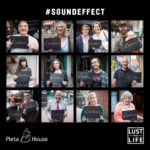Category Archives: Personality
What can we do about ‘negativity bias’? – the science behind being sound
Published: The Irish Times
Author: Dr. Malie Coyne
Why does negativity stick so damn much? You do something you’re happy with, everyone says you did a great job, but it’s that one comment that’s less than positive (“Why didn’t you do it this way?”) which keeps replaying itself over and over in your mind and taints your whole perception of it.
Turns out there’s a very good evolutionary reason for this called the “negativity bias”, which means that negative experiences weigh more heavily on our brains than others. Since the days of the caveman, we’ve evolved to be fearful and heavily attuned to the strong possibility of a threat to sustain our survival, whilst totally underestimating our resources to deal with them. Bloody typical! Left unchecked, the negativity bias can become a serious hindrance to emotional wellbeing and positive mental health, as negative thinking is often synonymous with anxiety and depression.
For every troll or road rager there are countless more ‘sounders’
Published: The Irish Times
Author: Tanya Sweeney
Expert Opinion: Dr. Malie Coyne
“Is it just me, or have people become a bit more combative with each other than before? Perhaps it’s the affect of call-out culture on social media, where minor infractions and differences of opinion get amplified into full-blown spats. It could be that we’ve become apathetic towards others in a world brimful of hate, violence and tragedy. Or maybe it’s just that we’re a little more protective of, what little personal physical space we have in the world. Either way, it’s made for a tense and occasionally defensive atmosphere, both online and off.”
Read article
The Science of Sound
Published: alustforlife.com
Author: Dr. Malie Coyne
In the context of an alarming increase in mental ill health in Ireland and urgency around how we are going to tackle the real pain faced by many, we need to focus our energies on “being sound” and promoting overall wellbeing, which is at the core of positive mental health.
Why does negativity stick so damn much? There is a very good evolutionary reason for this called the “negativity bias”, which refers to the way in which negative experiences weigh more heavily on the brain than others. We’ve evolved to be fearful and heavily attuned to the strong possibility of a threat in order to sustain our survival, whilst underestimating our resources to deal with them. Left unchecked, the negativity bias can become a serious impediment to good mental health, as it has been found to be synonymous with anxiety and depression.







